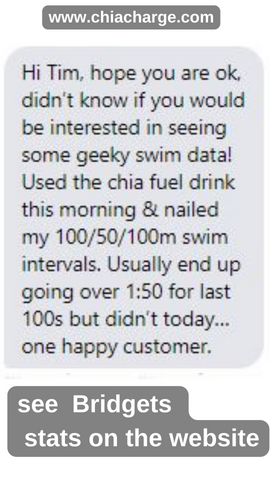Most Popular
A column with no settings can be used as a spacer
Link to your collections, sales and even external links
Add up to five columns
Most Popular
A column with no settings can be used as a spacer
Link to your collections, sales and even external links
Add up to five columns
Add description, images, menus and links to your mega menu
A column with no settings can be used as a spacer
Link to your collections, sales and even external links
Add up to five columns
Add description, images, menus and links to your mega menu
A column with no settings can be used as a spacer
Link to your collections, sales and even external links
Add up to five columns

More or Less? Is there a Perfect Balance of Nutrition and Training?
February 07, 2024 2 min read
Ever wondered how elite athletes keep raising the bar? Their winning strategy doesn't just include rigorous training routines but also meticulous attention to nutrition. Their training intensity dictates their dietary needs, with a bit of choreography between their training programme and meal plan.
We use a couple of studies to write this short blog, references are at the bottom of the page.
Let's take Jane as our "imaginary friend". A dedicated trail and ultra runner in her forties, Jane has found that mastering her diet is crucial to achieving her running goals.
When Training Intensity Peaks:
- Jane ramps up her calorie intake during periods of intense training. This ensures adequate carbohydrates for sustained energy and sufficient protein for muscle recovery.
- A typical breakfast might include a bowl of whole-grain cereal, mixed berries, and Greek yogurt, a steady supply of energy for her morning run.
- Jane's post-workout meal is a protein-packed chicken salad with quinoa, perfect for muscle repair. Post training and event food intake is hugely important for recovery, so that you are looking after your body and getting it ready to go again.
When Jane is between big runs and her training tapers off for some proper recovery time, her diet can follow suit.
Dialling Back after Big Events:
- Jane scales down her calorie intake and she ensures her meals remain balanced and nutritious.
- Lighter meals become the norm. A spinach and feta omelette for breakfast, grilled fish and a side of vegetables for dinner are her preferred choices.
- Jane pays close attention to her body's responses to dietary changes, keeping a food diary to track these shifts.
Remember, if you're striving to perform at your best, align your nutrition with your training. After all, it's not just about how hard you train, but also what you eat before training and in recovery too.
-
Burke, L. M., Hawley, J. A., Wong, S. H., & Jeukendrup, A. E. (2011). Carbohydrates for training and competition. Journal of Sports Sciences, 29(sup1), S17-S27. ↩
-
Thomas, D. T., Erdman, K. A., & Burke, L. M. (2016). American College of Sports Medicine Joint Position Statement. Nutrition and Athletic Performance. Medicine and Science in Sports and Exercise, 48(3), 543–568. ↩
You've unlocked a free gift! Make your selections now.
Unavailable
£0.00






